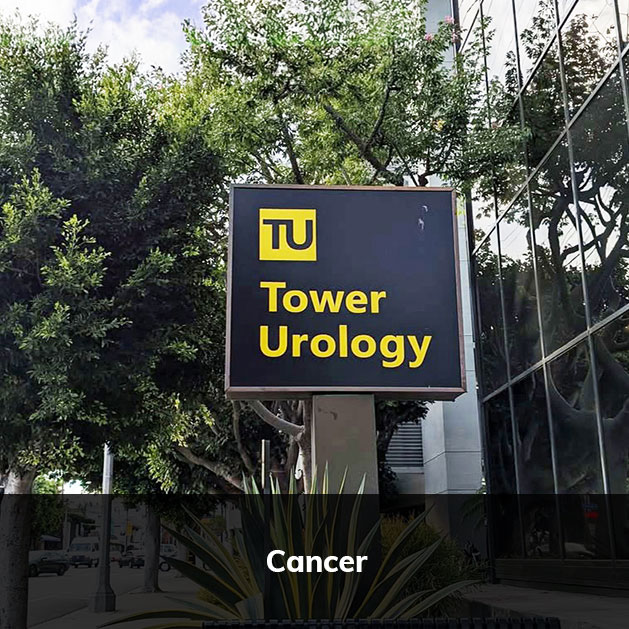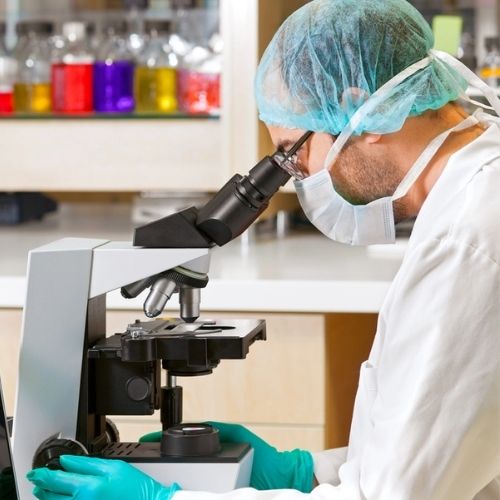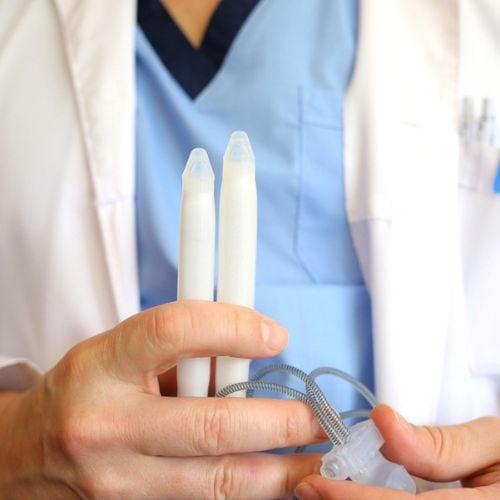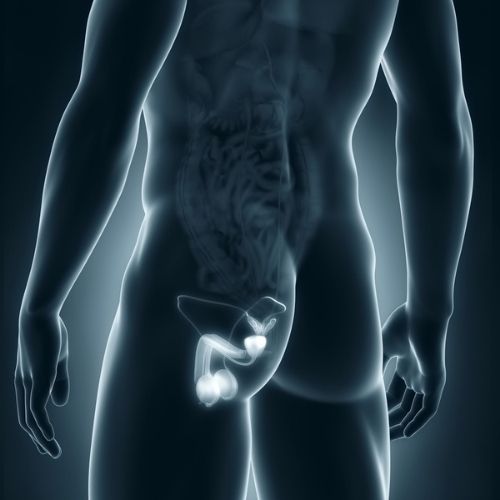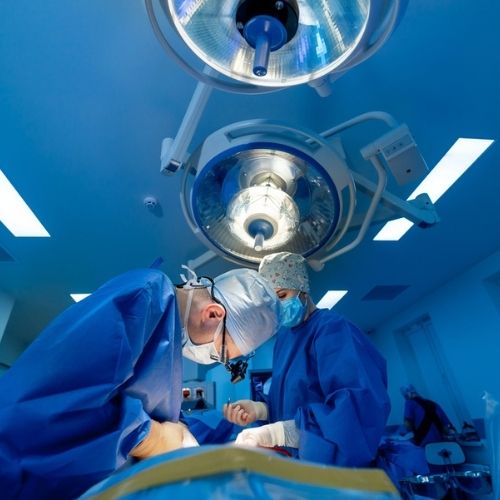What is oncofertility (cancer fertility management)?
Cancer is challenging for everyone. For a man of reproductive age, being diagnosed with cancer can be particularly difficult. Even after successful treatment and a positive prognosis, many cancer treatments can impact a man’s fertility and his ability to father a child.
Tower Urology’s men’s care team partners with pediatric and adolescent reproductive endocrinologists in a multispecialty effort to ensure that men and boys with cancer receive reproductive medicine counseling based on their reproductive needs and wants.
Our goal is to ensure that all males of current or potential reproductive age receive counseling on sperm banking before starting any cancer therapy, as well as advice about their treatment options from fertility specialists, thereby maximizing their reproductive health and potential.
One option is using a sperm bank, which will enable them to use that sperm when they and their partner are ready for assisted reproductive techniques.

Why is cancer fertility management important?
Fertility issues facing young adult cancer patients appear to be an aspect that is often overlooked, as studies show that just half of young adult male patients with cancer are counseled on sperm banking by their clinicians.
This is at odds with the approach to fertility issues suffered by female cancer patients who will routinely receive a referral to a fertility specialist to discuss egg freezing, embryo freezing, ovarian freezing, early menopause, and other issues affecting female fertility.
How do cancer treatments affect male fertility?
Some of the reproductive side effects of cancer treatments include:
Impact on sperm production
Cancer treatments, like chemotherapy and radiation, can have a significant impact on sperm production. Such treatments can:
- Lower sperm count
- Reduce motility, which refers to how well your sperm swims—if they don’t swim well, it’s harder for them to reach an egg.
- Impact overall sperm health, including changes in sperm shape and size, which can also affect fertility
Hormonal changes
Your body relies on hormones to regulate sperm production. Cancer treatments can disrupt these hormone levels, leading to reduced sperm production and potential infertility.
Genetic damage to sperm
Specific cancer care treatments can cause genetic changes in sperm. Genetics determines what information is passed down from parents to children, such as eye color and height. Genetic changes to sperm can increase the risk of passing down undesirable health conditions.
How do different cancer treatments impact men’s fertility
While newer cancer chemotherapy agents seem to be less toxic to sperm-producing cells in the testicles, and radiation oncologists take every possible measure to shield the testicles during radiation therapy, risks to future fertility still exist.
While every person’s situation is unique, understanding the potential risks can help you make informed decisions. Let’s look at some of the common treatments:
Chemotherapy and male infertility
Unfortunately, chemotherapy can seriously affect male fertility. Chemotherapy targets cells that divide quickly, including the cells in your testicles that produce sperm.
The impact of chemotherapy on your fertility can vary. It might be temporary for some men, and their sperm production might recover over time. However, for others, the damage can be permanent. This often depends on the type of cancer you have and the specific chemotherapy drugs used in your cancer treatment plan.
Radiation therapy and male infertility
Radiation therapy, especially when it’s aimed at areas near your reproductive organs, like your pelvis, can reduce sperm production. While doctors who specialize in radiation treatment (radiation oncologists) are cautious and take steps to shield your testicles during treatment, the risk of infertility remains a possibility.
Cancer surgery and male infertility
Certain types of surgery, particularly procedures for treating testicular or prostate cancer, can adversely affect a man’s ability to produce and/or ejaculate sperm. For example, surgery for testicular cancer might involve removing one or both testicles, drastically reducing or terminating sperm production altogether. Prostate surgery carries the risk of damage to the tubes that carry sperm.
Other cancer therapies and fertility concerns
Like immunotherapy (which helps your immune system find and attack cancer cells) and hormonal therapies (which change the levels of hormones in your body), some newer targeted cancer treatments can sometimes disrupt sperm production and affect hormone levels (such as testosterone).
What are some oncofertility treatments for men?
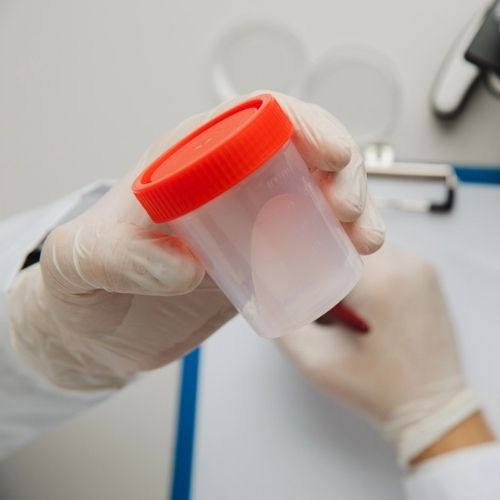
Several treatments are available for you that could make a real difference in your future fertility options. A typical oncofertility program might include the following services:
Sperm banking
This widely used and highly effective fertility preservation option for men is very straightforward. As women can preserve their fertility by egg freezing, men can provide donor sperm, which is also frozen for future use. This way, if cancer treatment affects your sperm production, you still have the option to try and have children in the future via in vitro fertilization (IVF) using your own sperm.
Testicular tissue freezing
Another option for pediatric patients who have yet to reach puberty or men who can’t produce a sperm sample is testicular tissue freezing. This new technology, no longer considered experimental, involves freezing a small piece of testicle tissue that contains sperm-producing cells.
Medications: clomiphene citrate and human chorionic gonadotropin
Clomiphene citrate and human chorionic gonadotropin (hCG) are medications that can help preserve fertility in men undergoing cancer treatment.
How clomiphene works
Clomiphene citrate (Clomid) works by:
- Blocking estrogen (primarily the female hormones) receptors in the hypothalamus
- Increasing the release of gonadotropin-releasing hormone (GnRH)
- Stimulating the pituitary gland to produce more luteinizing hormone (LH) and follicle-stimulating hormone (FSH)
- These hormones then boost testosterone production and sperm development
For men who have undergone cancer treatment, clomiphene has been shown to increase testosterone levels. Importantly, in testicular cancer survivors who received chemotherapy, clomiphene was associated with a significant increase in testosterone levels without side effects or disease recurrence.
How hCG Works
Human chorionic gonadotropin (hCG) works differently:
- It directly stimulates the testes to produce testosterone and improve sperm production
- It helps maintain testosterone levels in the testes, which are crucial for spermatogenesis (how sperm cells develop)
- It can be used to preserve fertility during testosterone replacement therapy (TRT)
When is the best time to talk about fertility preservation?
The best time to talk about fertility preservation is as soon as possible after your cancer diagnosis, but before starting cancer treatment. Tower Urology’s Men’s Healthcare team is here to help you determine what fertility care options might be right for you.
Why choose Tower Urology in Los Angeles for cancer fertility management?
Tower Urology’s board-certified urological team has been a leader in effectively treating cancer needs for over two decades. Our specialists are trained in all aspects of cancer diagnosis and treatment.
The advantage of Tower Urology lies in our unwavering commitment to providing world-class urologic care through advanced technology, personalized treatment plans, and a patient-centered approach. With a reputation for excellence and innovation, we deliver superior outcomes that distinguish us as leaders in urologic health.
We invite you to establish a care plan with Tower Urology.
Tower Urology is conveniently located for patients throughout Southern California and the Los Angeles area, including Beverly Hills, Santa Monica, West Los Angeles, West Hollywood, Culver City, Hollywood, Venice, Marina del Rey, and Downtown Los Angeles.
Our services include treatment for testicular cancer, prostate cancer, bladder cancer, kidney cancer, and cancer fertility management.
Oncofertility FAQs
Insurance coverage for sperm and tissue freezing in cancer patients varies by state and insurance plan. Still, there is a growing trend toward mandated coverage for fertility preservation in these cases.
As of March 2025, several states have passed laws requiring insurance coverage for fertility preservation services in cancer patients:
- California
- Colorado
- Connecticut
- Illinois
- Kentucky
- Montana
- New Jersey
- Oklahoma (effective January 1, 2025)
- Rhode Island
Sources
Oncofertility and preservation of reproductive capacity in children and young adults
https://acsjournals.onlinelibrary.wiley.com/doi/10.1002/cncr.26045
Using decision trees to enhance interdisciplinary team work: the case of oncofertility
https://link.springer.com/article/10.1007/s10815-010-9413-8
Oncofertility—An emerging discipline rather than a special consideration
https://onlinelibrary.wiley.com/doi/10.1002/pbc.27297
Preserving fertility for cancer patients
https://livestrong.org/how-we-help/livestrong-fertility/

